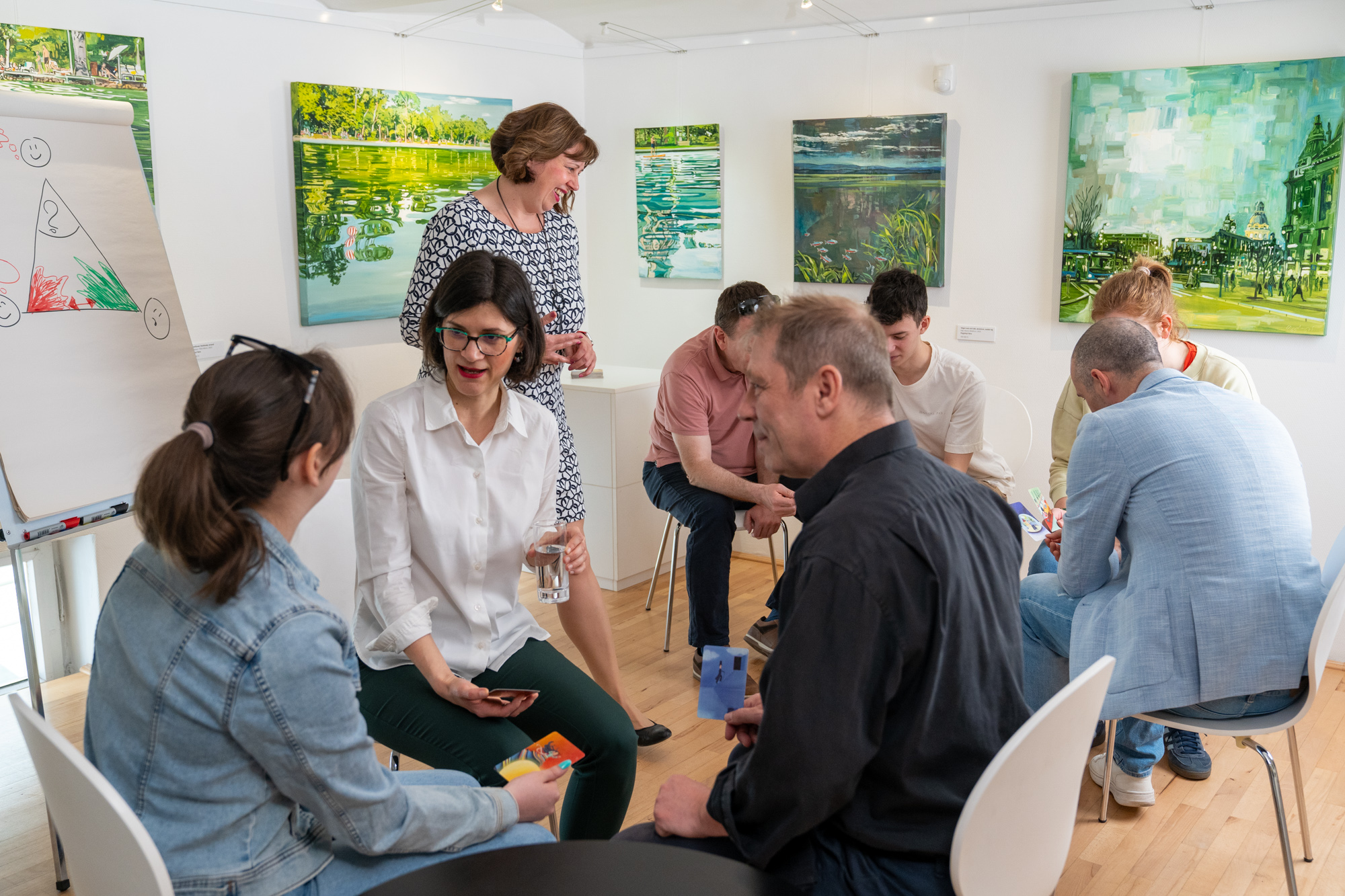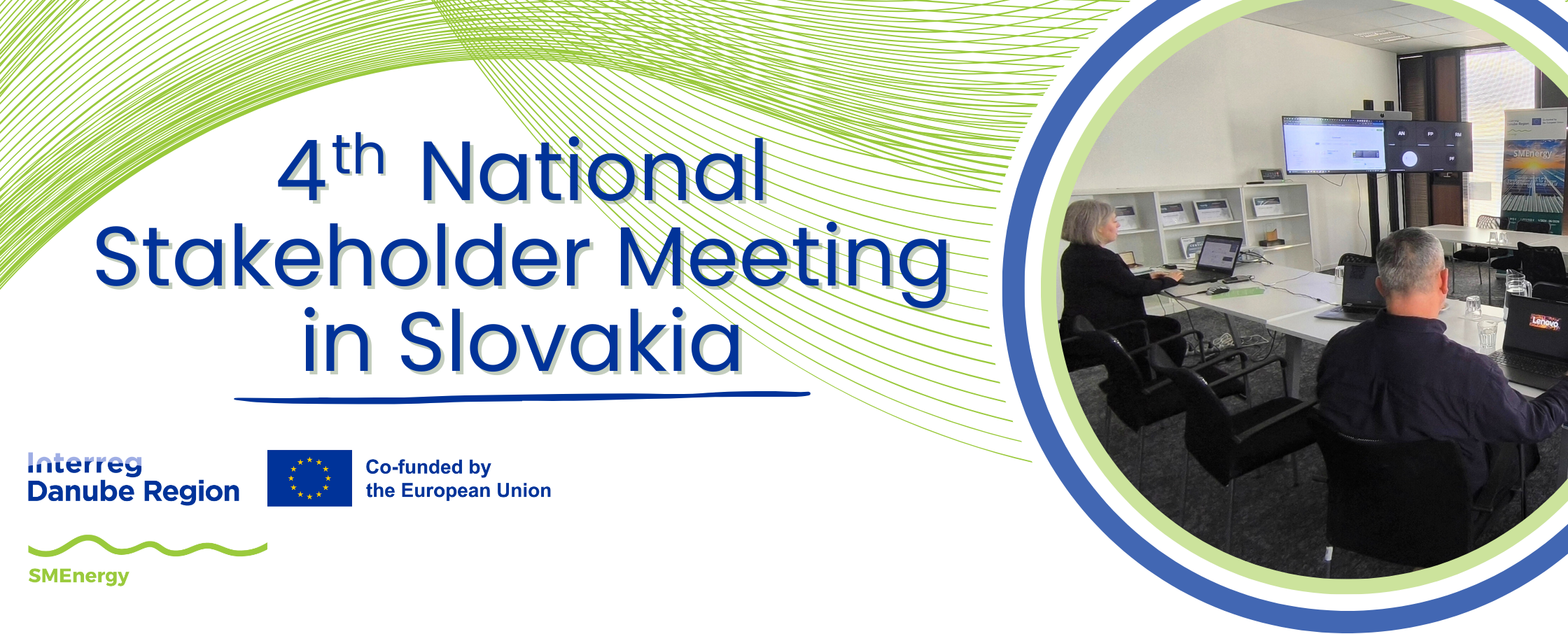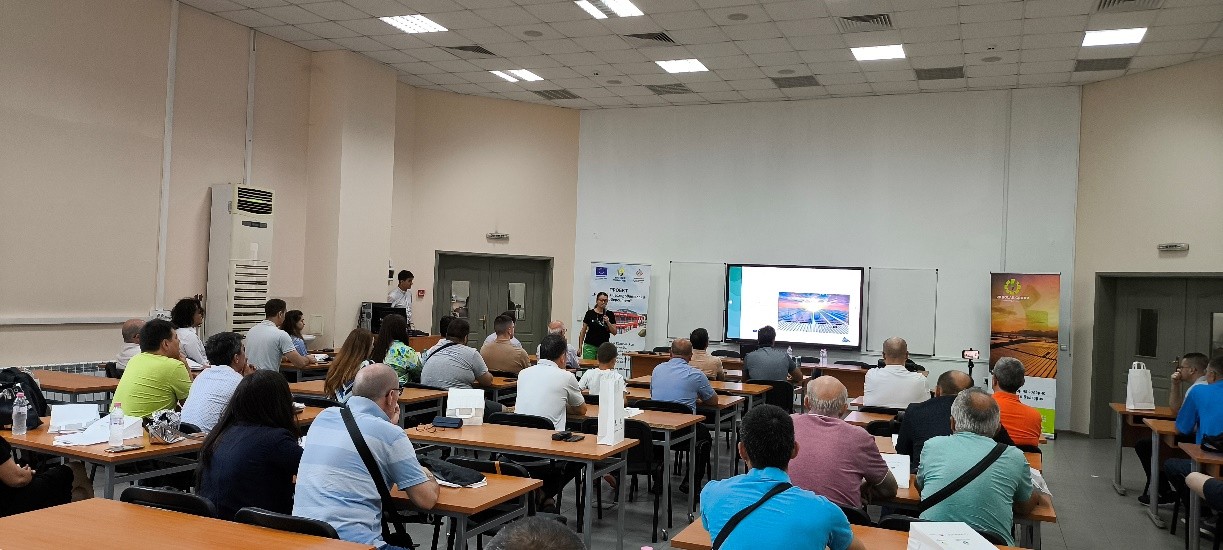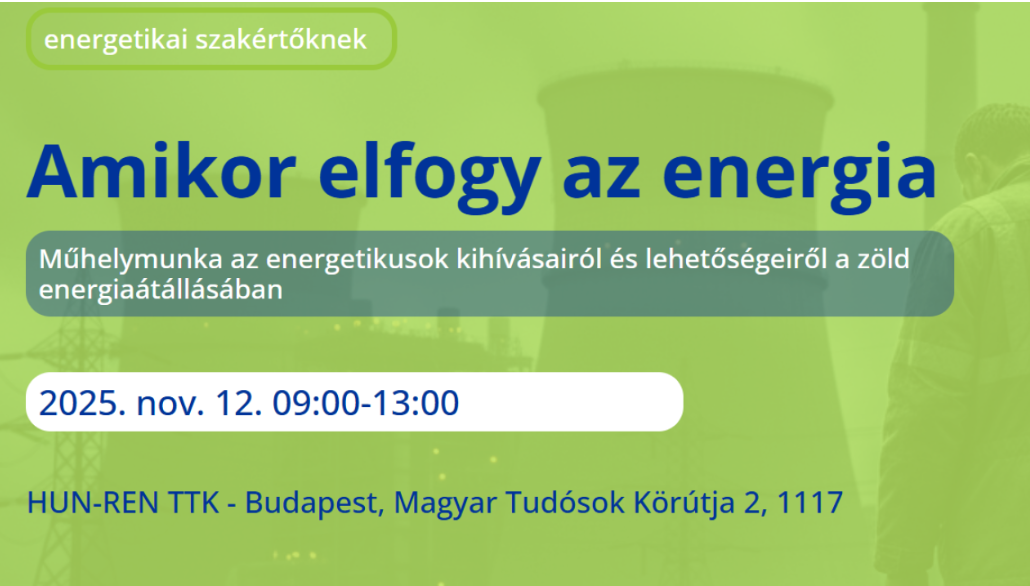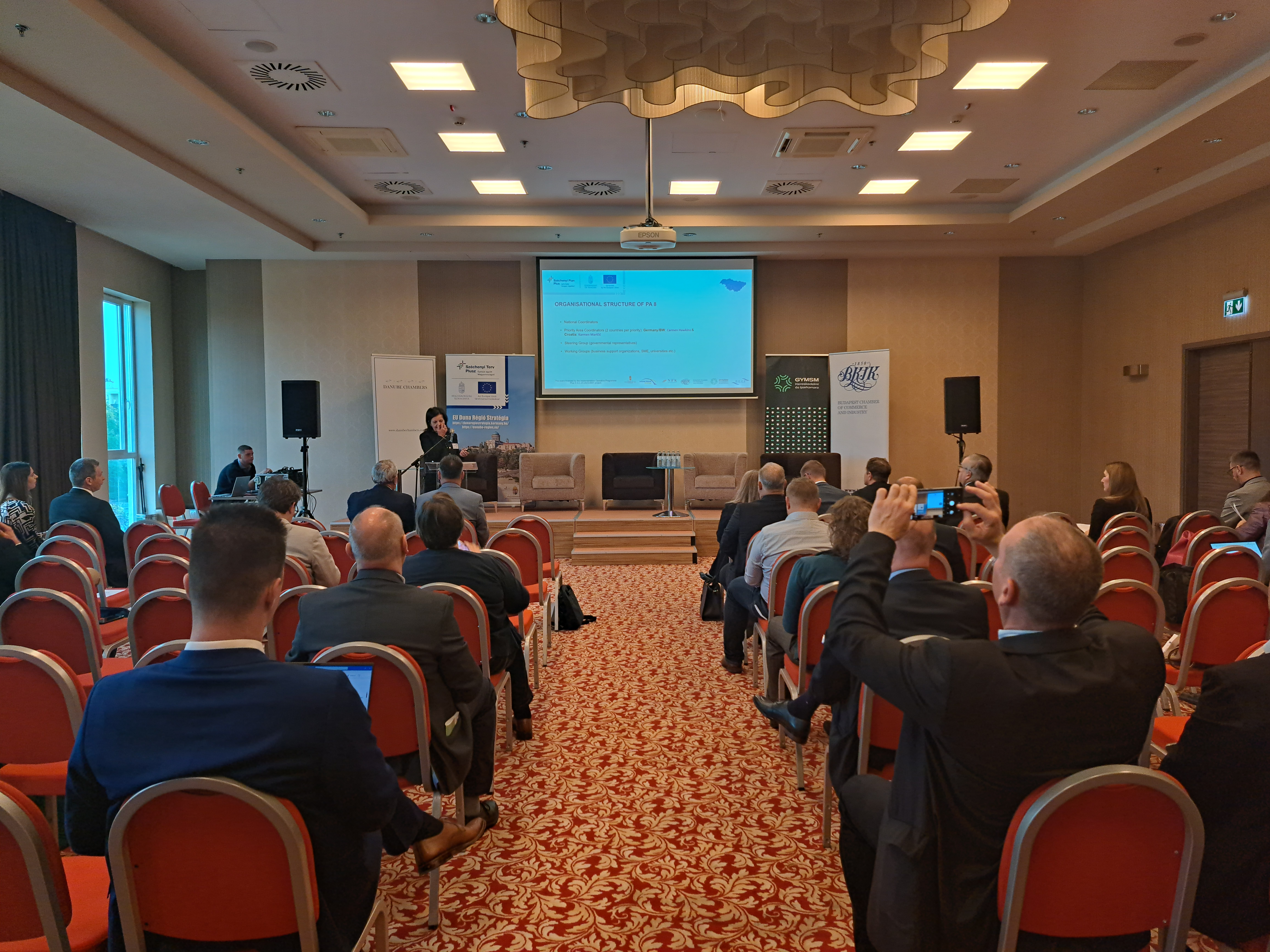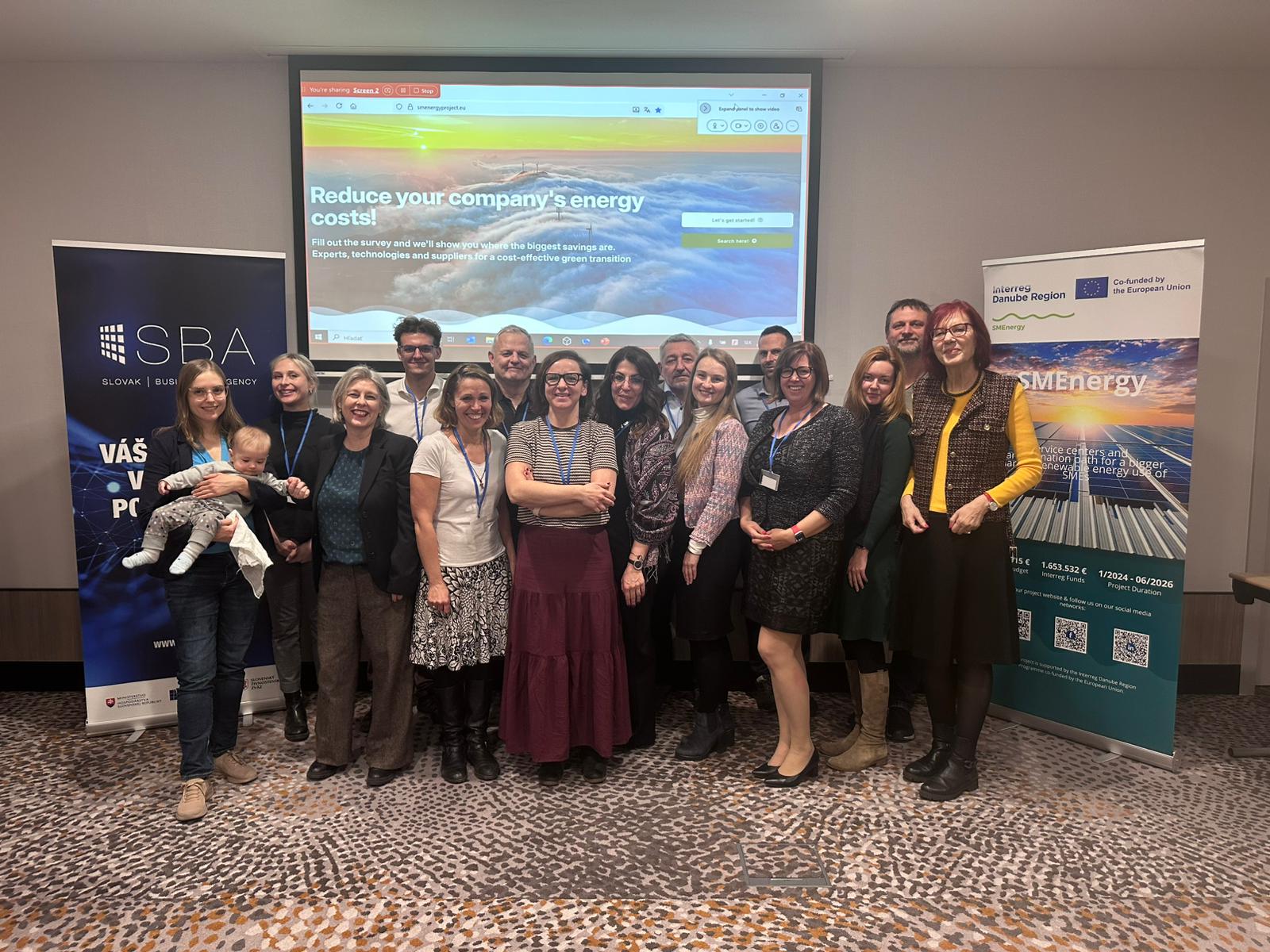
SMEnergy 4th Partner Meeting & Stakeholder Event in Bratislava
On 19–20 November 2025, SMEnergy partners gathered in Bratislava for the 4th Project Meeting and Stakeholder Event, hosted by the Slovak Business Agency (SBA) at the AC Hotel by Marriott Bratislava Old Town. The two-day event combined strategic workshops, stakeholder discussions, and a hands-on study visit to highlight practical approaches to energy efficiency and renewable energy adoption for SMEs in the Danube Region.
Strengthening Transnational Collaboration
The event opened with welcome addresses from the SBA, followed by a brief overview of SMEnergy’s achievements and the progress of regional pilot projects by the SMEnergy Lead Partner, Tea Potočnik (LEASP).
Partners discussed SMEnergy capitalisation efforts and shared insights from the CREDIT4CE project, an Interreg Central Europe initiative supporting manufacturing SMEs in decarbonisation and green transformation. This exchange highlighted ways to connect SME energy transition tools, financial mechanisms, and regional networks to foster long-term impact.
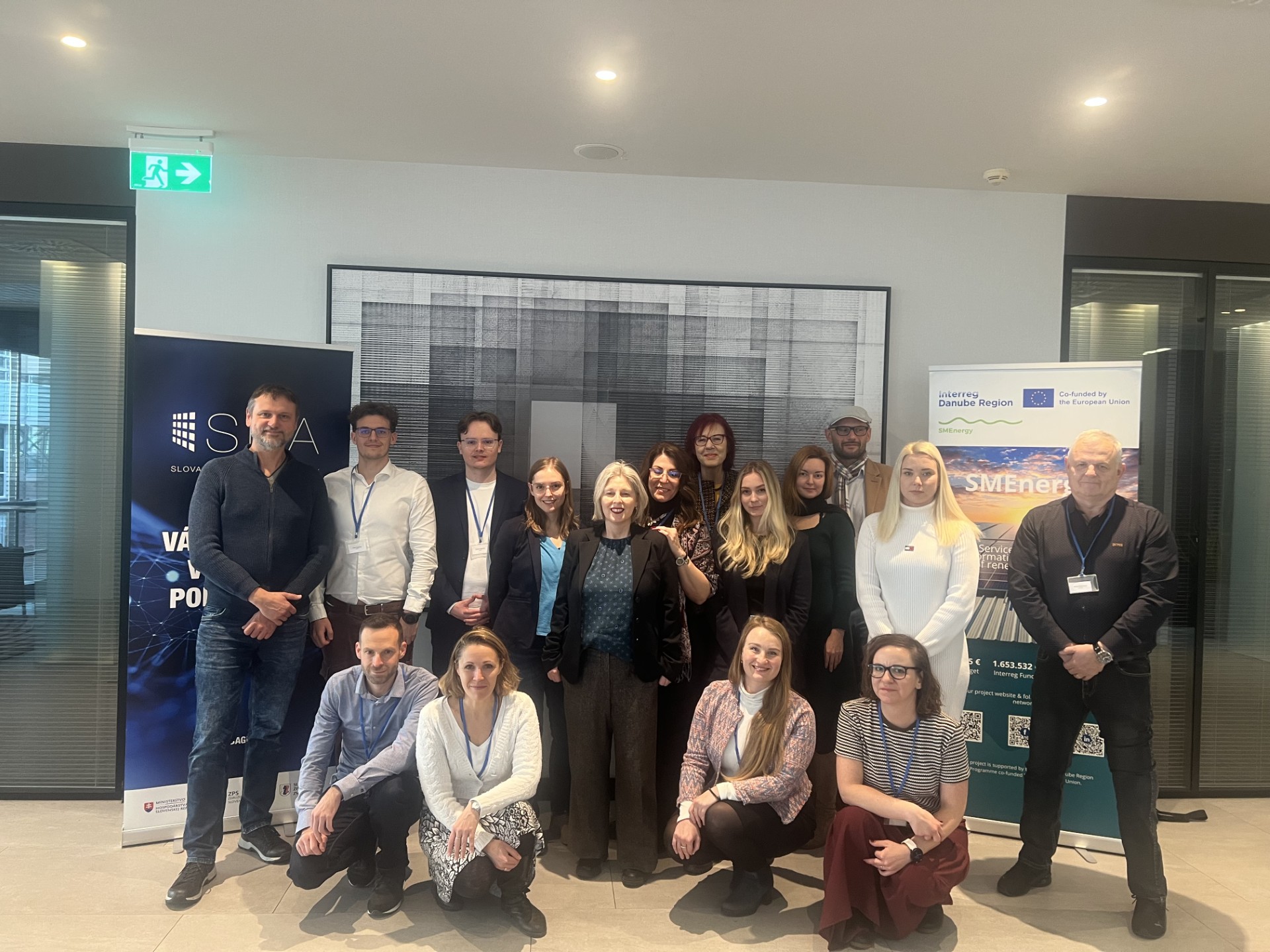
Strategy Development Workshop: Shaping the SMEnergy Framework
A central feature of the first day was the Strategy & Action Plan Workshop, designed to collect structured inputs for the SMEnergy transnational strategy (SO3). Partners worked in small groups, drawing from their national and regional experiences to feed into a shared Strategy Wireframe.
Discussions focused on several key areas:
Building on existing frameworks: Partners identified relevant regional or national strategies that could complement SMEnergy outputs.
Embedding SMEnergy outputs: The workshop explored how the Roadmap, Green Database & Marketplace, and GEKOS hubs could be sustained and integrated at regional and transnational levels.
Overcoming challenges: Partners highlighted barriers such as limited SME awareness, funding gaps, regulatory obstacles, and technical capacity needs, proposing objectives for the strategy to address these issues.
Envisioning action plans: Each group outlined first steps that could be implemented by the end of the project, as well as activities requiring long-term sustainability, linking the strategy directly to operational GEKOS hubs.
Stakeholder engagement: Partners identified key groups for ongoing consultation, including SMEs, business support organisations, policymakers, service providers, and financial actors, and discussed methods such as surveys, workshops, and interviews.
The workshop concluded with partners submitting completed worksheets, providing the foundation for a draft SMEnergy Strategy Wireframe, which will be refined in the coming months.
Engaging SMEs and Stakeholders: Breakout Sessions
Complementing the workshop, partners brought out into groups to encourage interactive discussions with partners on engaging SMEs, using GEKOS services, and leveraging the Green Energy Database & Marketplace. Participants explored potential funding opportunities for GEKOS and practical approaches to promote SME uptake across the Danube Region.
Study Visit: Bakery Kvetoslavov
The second day of the meeting included a study visit to Bakery Kvetoslavov, a family-owned artisan bakery that has been operating since 1993. With 95 employees, 11 retail locations, and around 5,000 customers per day, the bakery exemplifies how SMEs can combine traditional craft with modern energy efficiency and renewable energy solutions.
Partners learned how the bakery reduces energy consumption and integrates renewables through:
Thermal-oil deck ovens (ThermoStar): Providing uniform heat and stable temperatures while consuming up to 15% less energy than conventional ovens.
EkoBlok heat recovery system: Capturing flue gas and steam to produce hot water for space heating, proofers, and domestic use, reducing energy use by up to 25%.
Photovoltaics and battery storage: Rooftop solar panels (80 kWp) with 160 kWh battery capacity saving approximately 25% of annual electricity costs.
The visit highlighted practical applications of energy-saving measures, demonstrating how SMEs can lower costs, reduce emissions, and enhance operational sustainability. The session concluded with a tasting and an interactive discussion, allowing partners to reflect on lessons learned and explore potential replication in other regions.
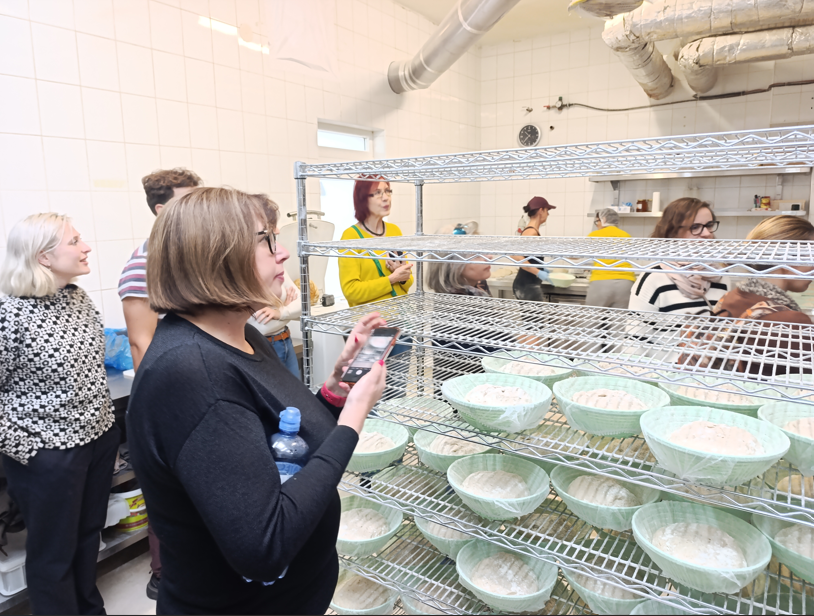
Next Steps
The inputs gathered during the Bratislava event will inform the final SMEnergy Strategy Wireframe, to be co-developed over the coming months and serve as the basis for the partners' local action plans, ultimately supporting regional and transnational adoption of GEKOS services and energy transition tools. In this way, the SMEnergy project consortium continues to focus on empowering SMEs to embrace renewable energy, reduce carbon emissions, and actively contribute to a greener Danube Region.
News & Events
Read the most recent updates and explore the upcoming events.

